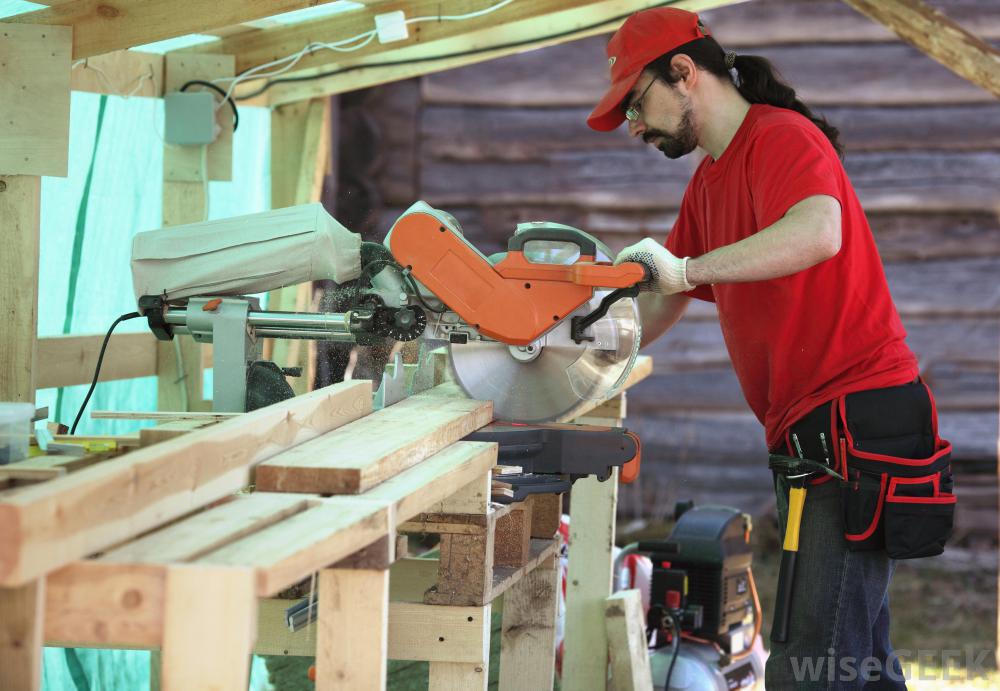Starting your own business as a tradesman is a great way to earn a living on your own terms. There is always a good amount of work out there and even though you might see a bit of a drop off from time to time, you should always be able to earn enough to sustain yourself. You’ll do just fine working on your own or with one or two guys just doing work on residential properties but if you want to start making some more money, it’s worth thinking about expanding your business and taking on some larger jobs

Expanding your company is no easy feat and there are going to be a lot of costs involved that you might not have considered before. You’ll also have to tap into a whole new market of customers outside of your normal residential jobs. If you’re fed of being small time and you want to grow your sole trader business into a larger company, here’s how to do it.
Update Your Website
When you’re working a lot of local jobs the majority of your business comes from word of mouth. It’s still important to have a website so people can find your contact details etc. but they aren’t going to be too bothered if it looks amateur because their decision to use you will be based on the testimony of others, not how professional you look online. However, if you’re trying to land bigger contracts that aren’t in residential homes, your website will make a big difference. It’s going to cost you a bit of money to have a professional web developer build you a new site but it’ll be worth it if it helps you to find bigger jobs. You should make sure that the new site looks slick, like any other big contractors site and it contains plenty of testimony from past customers as well as a list of services that you offer. Along with reviews from your customers, you should make sure you’re using good quality photos and videos of your work as well, so potential clients can see the quality of your work for themselves.
Use Social Media
Again, you probably haven’t been relying on social media too much when you’re just working locally but if you’re trying to expand your reach, it’s a great way to do it without spending too much money. When you’re setting up your new website, design your social media page using the same aesthetic, if you don’t use the same branding across the board, it’ll make you look amateur. Whenever you’re doing jobs, try to encourage customers to post pictures of your work and share them, you should be doing the same but it has more value if it comes from them. As well as posting about yourself and your business, you need to be posting content that draws visitors to your website and social media pages more generally. By writing handy DIY tutorials and articles about the construction industry in general and posting them on your website and social media pages, you show people that you’re a trusted leader in your industry.
Update Your Equipment
If you’re going to start taking on bigger jobs then you’ll need the equipment to handle it. If you’re having to turn down jobs because you don’t have the capability, those offers will soon stop coming in. That’s why it’s important that you get a load of new equipment before you start going after those contracts. At this point, you’ll have to decide whether you’re going to buy that stuff or hire it. When it comes to things like power tools that you’re going to need on most jobs, it’s best to buy it because over the years, the cost of hiring them all the time will add up to way more than the one off price of buying it. But with larger pieces of machinery that you only need for certain jobs, it’s sometimes best to hire it out. For example, you should find tipper trucks for hire instead of buying one because you’ll only be using it occasionally. However, sometimes it is worth buying larger pieces of plant, especially if you’re using them more often. It’ll cost you a lot and you’ll have to take out a loan to do it but you should consider it an investment. You’ll have another asset for the company which you can cash in at a later date if you fall on hard times.
Hire More Employees
When you’re working on a residential property, you can do the job with just one or two extra people but once you start landing those bigger contracts, you’ll need more people with different skills. One of the best ways to find good employees is through recommendations. Anybody that you’ve worked with before should be your first port of call. That’s the easiest way to start building up a staff of reliable people. Beyond that, you need to consider the specific skills that you’ll need in employees. For example, when you’re working on a residential property, you’ll probably be using sole traders for your electricians and plumbers. You could carry on with that but if you’re getting regular work, it might be better to bring your own in full time. You also need to consider the plant that you’re using and bring in employees that have the correct licenses to operate those machines. Be aware that you’ll have to pay more money for those skilled employees so factor that into your budget.
When you’re just taking people on for small jobs, there aren’t as many legal hurdles to jump through, especially if you’re just bringing in a subcontractor who is being paid directly by the client. But when you’re a larger company that is hiring your own people and paying them directly, it’s important that you understand all of the legal implications. You’re liable for sorting out all of their tax affairs and making sure that they’re working legally. Even if you end up on the wrong side of those laws by accident, you’ll still end up getting slapped with a hefty fine so make sure you read up on it before you start.
Look For Bigger Contracts
Working on residential properties is still a good source of income so don’t write it off, but you should be getting out there and finding some larger contracts. Renovating office buildings or flats is a good place to start but you’ll only land those contracts once you’ve advertised yourself properly and brought in enough new employees to do it. Once you’ve done a few, you shouldn’t find it too hard to find more but the hard part is getting the ball rolling in the first place. It’s going to be hard to convince companies to use you, especially when there is already a load of experienced companies out there that have a lot more experience with those bigger jobs. The best place to start is with any contacts you’ve got in the industry. Ask around and see whether anybody knows of any jobs, perhaps ones they’ve been offered but don’t have the time to do. Getting a referral from somebody that a client already trusts goes a long way and you should be able to get your foot in the door with those first few jobs. To start with, you might have to lower your prices and undercut the already established companies if you’re going to win contracts but once you’ve got a bit of experience, you can increase your prices again.
Another good way of finding contracts is by bidding on public projects. Local authorities are always looking for contractors to build and renovate public buildings. Their major focus is often getting work done as quickly as possible, for a good price. If you’re undercutting some of the more experienced companies, you might be able to take that work away from them. However, it’s worth remembering that a lot of those companies will have long term contracts with local authorities so you’ll need to find out when it’s time for them to renew their agreements and then throw your hat in the ring.
All of the things that you’ll need to do to expand are going to cost you a lot of money so if you’re thinking about trying to branch out and grow your business, spend at least a year or two saving money from the jobs you’re doing now. Even once you’ve got some savings behind you, you’ll have to borrow quite a bit to get yourself started. That’s a big risk and you could end up losing everything if you don’t manage to find any extra work. You’ll still be able to sustain yourself with smaller jobs but when you’ve got loan repayments to deal with, you’ll struggle. Before you decide to start expanding, it’s worth asking yourself if you’re willing to take such a big risk, or just play it safe and carry on working as you are on residential properties.


No comments yet.